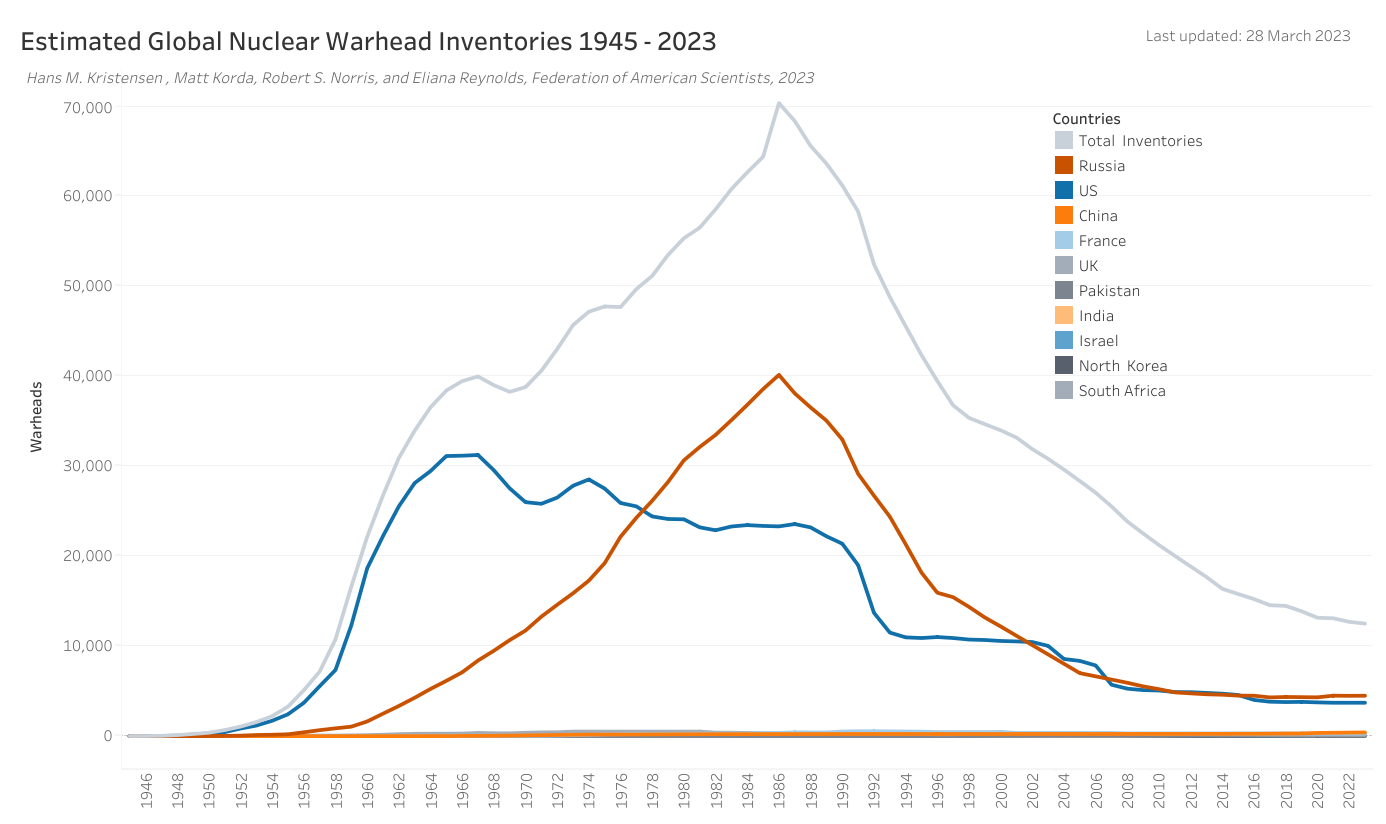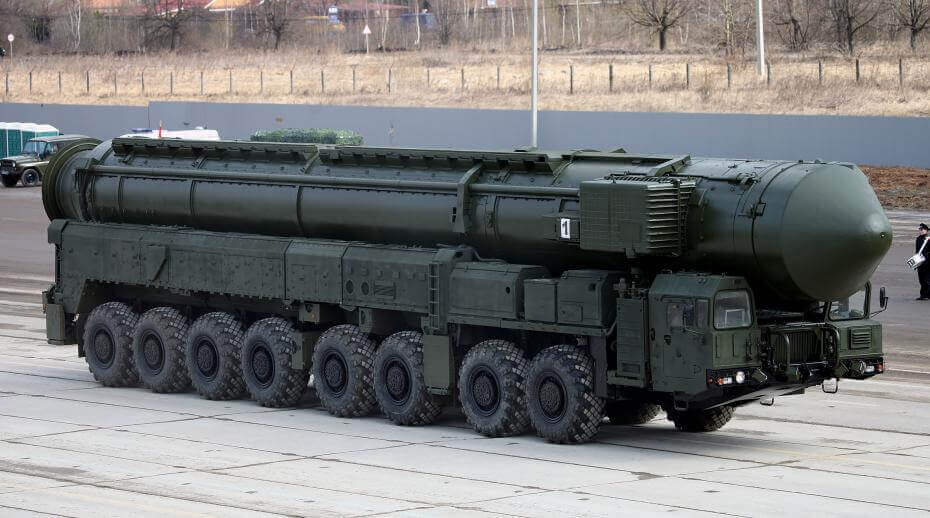A new report found that there were 9,576 nuclear warheads available for use at the start of 2023, a 1.44% increase compared to the same period last year. According to the study, released by the Norwegian People’s Aid NGO last week, there has been a steady increase in active warheads since 2017.
All nine nuclear states are modernising their arsenals, with China, India, North Korea, Pakistan, and Russia increasing their stockpiles in 2022. Apart from the warheads available for military use, the report noted that close to 3,000 decommissioned warheads are in storage in Russia and the US alone. In total, there are 12,512 warheads in the world this year.
While the total number of warheads — active and decommissioned — has seen a steady decline since 1985, the study attributes this downward trend to the US and Russia destroying a few older warheads every year. However, it expressed alarm at the rise in active warheads and urged nuclear states to curb usage.

“If this does not stop, we will soon see an increase also in the total number of nuclear weapons in the world, for the first time since the Cold War,” warned Grethe Østern, a member of the NGO.
In fact, the report stated that the fear of nuclear weapons usage is currently at its highest since the Cold War. It also found that the warheads available for use in 2023 have the destructive power of 135,000 Hiroshima bombs.
Russia-Ukraine War Risks Nuclear Escalation
The findings were released as the threat of nuclear warfare has increased since the start of the Ukraine War. Russian President Vladimir Putin has indicated several times that Moscow could use “all means available” to ensure victory against Kyiv, emphasising that his threats should not be seen as a “bluff.”
With Western countries supplying billions of dollars’ worth of military equipment to the Ukrainian government, Moscow has doubled down on its rhetoric. For instance, immediately following the UK’s decision to send depleted uranium munitions to Ukraine this week, Putin announced that Russia would transfer tactical nuclear weapons to Belarus, a close ally of the Kremlin.
UN Secretary-General António Guterres warned last year that nuclear threats, seen following the Ukraine war, have put the world one miscalculation away from “nuclear annihilation.”
In this respect, Norwegian People’s Aid chief Henriette Killi Westhrin asserted that the situation in Ukraine displayed the futility of nuclear weapons in ensuring deterrence. Nuclear weapons have “enabled conventional warfare and provided an incentive for risky behaviour, which in the extreme can result in nuclear war,” said Westhrin .

